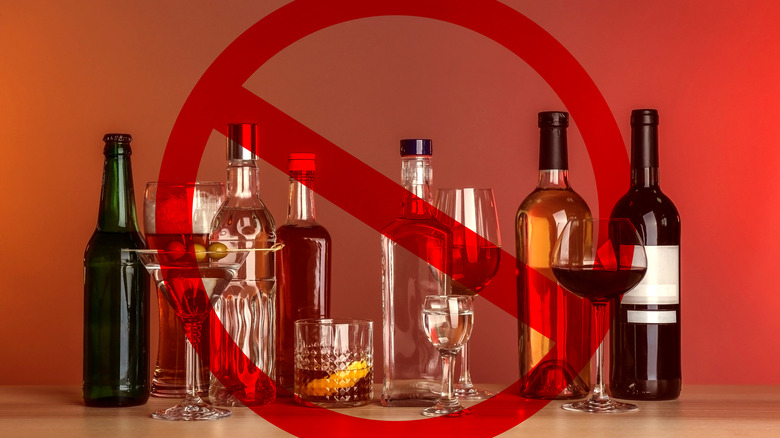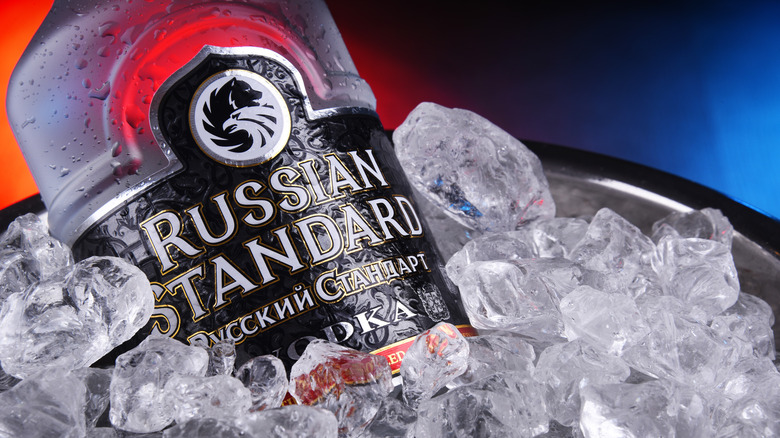Why Banning Russian Alcohol Might Not Accomplish Much
History has shown that the obvious side effects of war aside, food and drinks are often the first to find themselves in the middle of the crossfire, albeit for different reasons. Germany during World War I banned its citizens from eating sausages because they played a far more important role in the making of German Zeppelin airships (via Business Standard). The British government imposed a ban on the import of bananas during the Second World War because the fruit needed to travel in refrigerated ships that were more useful put to work in the war effort instead (via Atlas Obscura).
While the circumstances may be different from an ongoing world war right now, a consumable product has once again found itself the casualty of war. In light of the Russian invasion of Ukraine, the hashtag "Russian Vodka" has been trending on Twitter, and the growing sentiment is that all Russian vodka should be banned from the U.S. and Canada (via News18). While it may seem like a call to action demanded by netizens to show their support of Ukraine and condemn Russia, it turns out that several states in the U.S. have, in fact, ordered a ban on the sale of Russian liquor, including Russian vodka (via The Washington Post). Though a noble move, some, however, say that banning Russian alcohol won't really accomplish much outside of acting as a symbolic gesture.
Only a small percentage of vodka in the U.S. is Russian
According to Reuters, Manitoba, Newfoundland, and Ontario in Canada have already said that they are going to remove Russian liquor from all stores in their respective provinces. New Hampshire, Ohio, and Utah have also banned alcohol made in Russia across all ABC stores owned by the government (via The Washington Post). Virginia is the latest to join the boycott of Russian alcohol with seven brands of vodka, including Beluga and Russian Standard, on the black list. The sale of vodka with Russian names and marketing will not be affected, as long as the vodka isn't being produced in Russia.
While the move is generally being applauded, USA Today points out that Russian vodka, in particular, makes up a very small percentage of vodka imported by the U.S — roughly 1.2%, based on data from the first six months of 2021. The majority of vodka in the U.S. is either produced in the country or comes from the U.K., Sweden, and France. Therefore, the U.S. putting a halt to the small amount of Russian vodka that it imports is very unlikely to have a significant economic impact on Russia. Per Forbes, even Utah's Governor Spencer Cox recognizes that banning the sale of Russian liquor is little more than a "symbolic gesture" to show the country's support for Ukraine.

